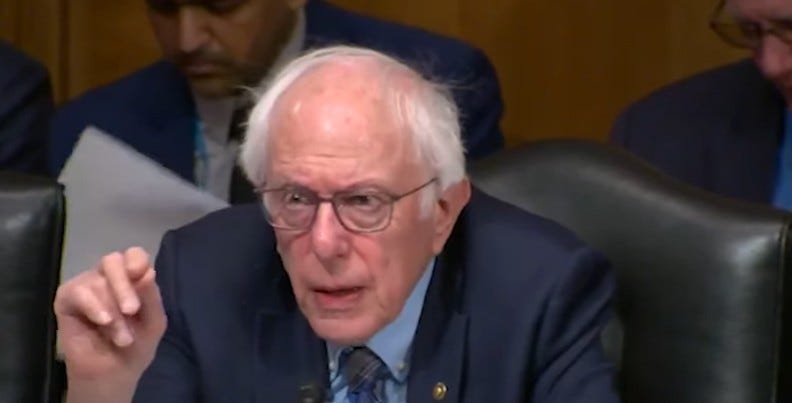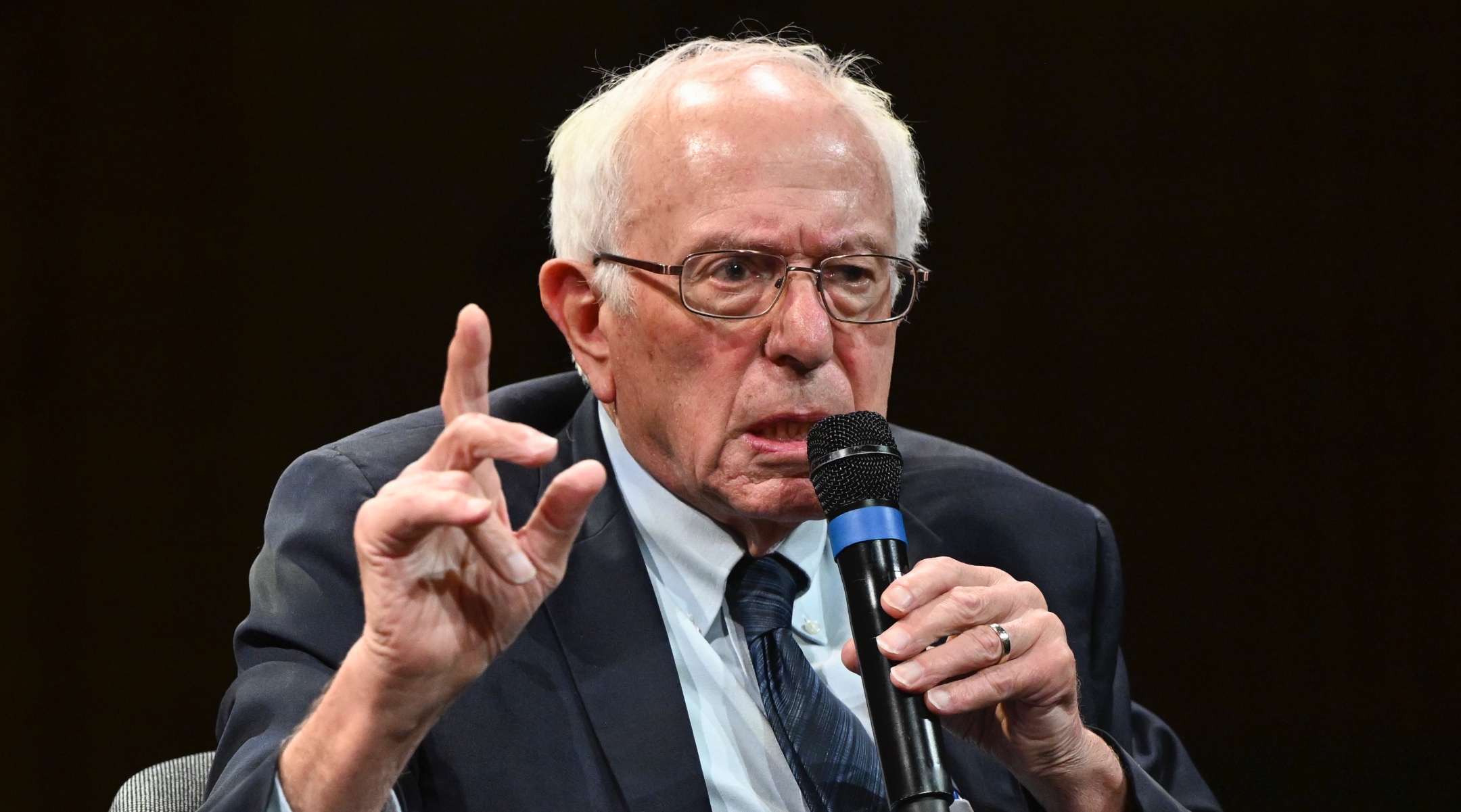One of the ads Donald Trump deployed to defeat Kamala Harris argued “Kamala’s for they/them. President Trump is for you.” Since the November election, Democrats have been embroiled in an internal debate regarding transgender rights.
Some, like California Governor Gavin Newsom, believe Democrats need to pivot rightward. On his podcast, he told right-wing activist Charlie Kirk that allowing transgender women and girls on female sports teams is “deeply unfair.” Representative Seth Moulton provocatively argued that he didn’t want his daughters “getting run over on a playing field by a male or formerly male athlete, but as a Democrat, I’m supposed to be afraid to say that.”
Illinois Governor JB Pritzker, who, like Newsom, is considered a possible 2028 presidential candidate, took a sharply different tack two weeks after the Californian’s comments. Addressing the Human Rights Campaign, Pritzker urged, “Let’s not take the soul-sucking path of sacrificing the most persecuted for that which we deem to be most popular. I know that there are transgender children right now looking out at this world and wondering if anyone is going to stand up for them and for their simple right to exist. Well, I am.”
This debate, as an electoral matter, moved from the hypothetical to the real world recently as Brad Schimel, the conservative candidate for an open Wisconsin state Supreme Court seat, tied his liberal opponent Susan Crawford to transgender rights. (State Supreme Court elections are nonpartisan, but the Republican Party of Wisconsin financially backed Schimel, and the Democratic Party of Wisconsin did the same for Crawford.)
Wisconsin Republicans, who control the state legislature, set the stage for Schimel’s attack in mid-March by passing a ban on transgender student-athletes from competing on female sports teams. Nearly every Democratic legislator voted against the bill, and Democratic Governor Tony Evers immediately pledged to veto it.
At the same time, the Schimel campaign released a TV ad featuring a woman speaking directly to camera, who said:
Out-of-state special interests are trying to buy a Supreme Court seat for Susan Crawford. Why? Because Susan Crawford supports their radical agenda. And I’m not okay with any of it. Let transitioning male teachers use my girls’ bathrooms at school? Allow boys to compete with them at sports? Giving puberty–blocking drugs to children without parent consent? That’s who Susan Crawford sides with. And I’m not okay with any of it.
How did Crawford handle this attack? With offense, not defense.
The Crawford campaign response ad began with a clip of Schimel’s ad shorn of the audio. The narrator let loose:
Brad Schimel is lying about Susan Crawford’s views on protecting kids, just like he lied about rape kits, and let child molesters off easy, even blaming child victims.
(The claims about Schimel’s prosecutorial record didn’t come out of the blue. Both Crawford and Schimel spent their campaigns accusing each other of being soft on sexual abuse crimes.)
After torching Schimel, the narrator pivots and praises Crawford:
The truth: Susan Crawford is a former prosecutor, a common-sense judge, and a mom. And unlike Schimel, she’s always protected our kids at school and everywhere else.
Crawford herself closes the ad: I’ll always follow the law and use common sense to decide what’s right and what’s wrong.
The word “transgender” is never uttered. Instead of getting bogged down explaining her views on transgender rights or disavowing any supporters, Crawford focused on her opponent’s vulnerabilities. In defining her own values, she used appealing yet vague language about “protecting kids” and applying “common sense” so that viewers could interpret how they wished.
Crawford also employed restrained language last month when asked by PBS Wisconsin if transgender people have “specific protections under the law”:
…if a case came in front of me, that was making an argument about the rights of transgender people or making a claim that they’d been discriminated against or something like that, I would have to look at the law and see what protections were available, and hear out what the attorney’s arguments were both for and against those kinds of protections.
If this was short of a full-throated defense of transgender rights by Crawford, neither was it throwing transgender people under the proverbial bus. Crawford sought to avoid making transgender people the focus of the election, and she succeeded. Meanwhile, contrary to the counsel from Newsom and Moulton, statehouse Democrats in Wisconsin did not flinch from opposing the transgender athlete ban. That principled stance did not cause any blowback to the Crawford campaign.
The focal point in the final days of the state supreme court election was not transgender people, but the free-spending, bloviating Elon Musk, who by his ubiquitous presence in the state undercut Schimel’s portrayal of Crawford as the candidate propped up out-of-state wealthy ideologues. Wisconsin voters didn’t buy it. Crawford ended up outperforming the pre-election polls, walloping Schimel by 10 points.
Running for judicial office is not the same as running for legislative or executive office; judicial candidates can more readily duck taking a position because they must objectively weigh the evidence in any specific case. Nevertheless, Crawford followed an approach for navigating polarizing cultural issues that has worked in all sorts of campaigns: change the subject and seize the offensive.
Sometimes, that is easier said than done. Politicians can’t change the subject if that subject is agitating much of the public. Republicans couldn’t easily deflect the abortion issue in the 2022 midterms so soon after the Supreme Court repealed Roe v. Wade. Democrats felt they had to confront inflation head-on in 2024 because the public was still hurting from elevated prices even though the inflation rate had cooled.
But transgender issues are not top of mind for many people. While polls show support for transgender athlete bans, a September 2024 Gallup poll asked respondents how important a candidate’s position on 22 issues was when determining their vote. Transgender rights came in last, with only 38 percent saying a candidate’s position on the subject was extremely or very important. At least 50 percent said the same for each of the other 21 issues, with “the economy” topping the list at 90 percent, followed by “democracy in the U.S.” at 85 percent.
Democrats should keep the focus on Republican vulnerabilities. Trump’s destabilizing tariff policies, threatened Medicaid cuts, and rampant corruption provide Democrats with plenty of political opportunity. They don’t need to make concessions to the anti-transgender right wing, which risks fomenting intra-party division when they could be driving wedges through the opposition.











